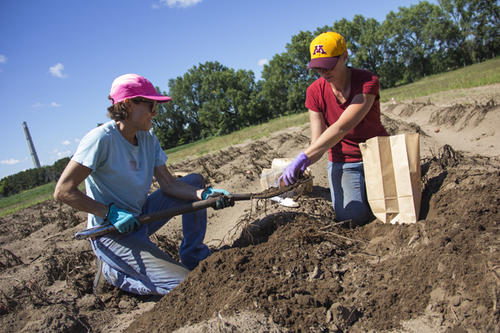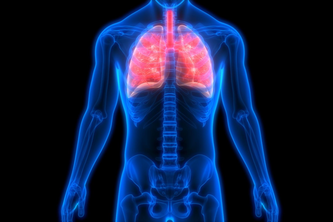
A recent grant from the National Science Foundation (NSF) to a University of Minnesota College of Food, Agricultural and Natural Resource Sciences scientist will lead to the creation of an international network working on plant-associated microbes. Plant Pathology Professor Linda Kinkel was recently awarded the $500,000 NSF grant that will lead to the creation of the Agricultural Microbiomes Project (AMP) research coordination network.
“We’ve long known that crop productivity is affected by the microbes in the soil. We can enhance crop productivity by better understanding how this works and sharing this understanding throughout the research field," said Kinkel. The grant means we can create an international network that will bring together researchers from academic, federal, and private company research laboratories. We need to share what we know about nutrient access and uptake, what suppresses plant pathogens, and how microbes play in plant-stress tolerance."
AMP participants will develop a coordinated global network of scientists, research sites, and model cropping and plant systems focused on agricultural plant endophytic and soil microbes. This will lead to better understanding of plant microbiomes and their relationships to plant productivity and sustainable crop production. AMP research coordination network participants will be key players in this work and its promotion.
The grant, which will support needed staffing, national workshops, and scholarships for students and underrepresented groups, will clear the way for researchers and educators to leverage existing research while building connections and partnerships between microbiome researchers and others in critical related fields such as systems biology, geographic information systems, evolutionary biology, and synthetic biology.
“Soils and plants support complex microbiomes composed of bacteria, fungi, and viruses. All of these have significant impacts on agricultural productivity,” Kinkel explained. “The more we know about this ‘new frontier,’ the better we will be able to harness microbes to enhance sustainable production of food, feed, and fiber to support an anticipated global population of nearly10 billion by 2050.”
Co-principal investigators include Jan Leach, Colorado State University; Posy Busby, Oregon State University; Jude Maul, USDA-ARS; and Dan Tomso, AgBiome.
CFANS Department of Plant Pathology: https://plpa.cfans.umn.edu/
NSF Abstract on AgMicrobiomes Project:https://www.nsf.gov/awardsearch/showAward?AWD_ID=1714276&HistoricalAwards=false
- Categories:
- Science and Technology





